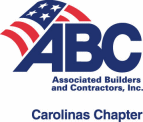Wednesday’s Powerball drawing promises the winner a $1.3 $1.5 billion (yes, that’s “billion” with a “b”) jackpot. Unfortunately, your odds of picking the winning numbers are about 1 in 292 million, or roughly the same odds as an architect acknowledging a deficiency in construction plans & specifications (I kid!). Buying a few extra tickets might “improve” your chances, but they’ll remain infinitesimally small.
Fortunately, there are some steps you can take to improve the odds your commercial general contracting business will have a jackpot year in 2016. These five tips spring to mind:
- Know who you’re doing business with. One bad project can spoil the gains from ten successful ones. Do your homework on the owners who want you to build their projects. Avoid owners who insist on oppressive contract terms, have a history of problem jobs, and/or just don’t seem to know what they’re doing. Sometimes the best contracts are the ones you don’t sign.
- Buy out subcontracts thoughtfully. Just as you need to be careful picking & choosing the jobs you bid, you should be equally careful about selecting your downstream dance partners. First-tier subcontractors offering you a price advantage might not necessarily be reliable team players down-the-road. Balance price with dependability.
- Cultivate a culture of jobsite safety. Having a track record for operating safe jobsites makes your company more attractive to the best owners, keeps your workers’ compensation mod rate in-check, and decreases the chances you’ll be spending time & money this year defending against claims. Safety first, every day.
- Secure your payment rights. In North Carolina, that means filing a Notice to Lien Agent as your work begins, informing suppliers of the identity of the lien agent, guarding against double payment liability through the Notice of Contract procedure, and enforcing your lien rights timely, when necessary. If you’re unaware of how any of these tools work, call your construction attorney immediately. Speaking of construction lawyers…
- Rely on your lawyer for more than just dispute resolution. Construction attorneys do more than resolve claims. We draft & review contracts (as well as construction forms) and provide counseling throughout the construction phase of a project and beyond. Make an experienced construction attorney your partner in profitability all year long.
Good luck, both with Wednesday’s drawing and with the year ahead. As always, comments welcome!










